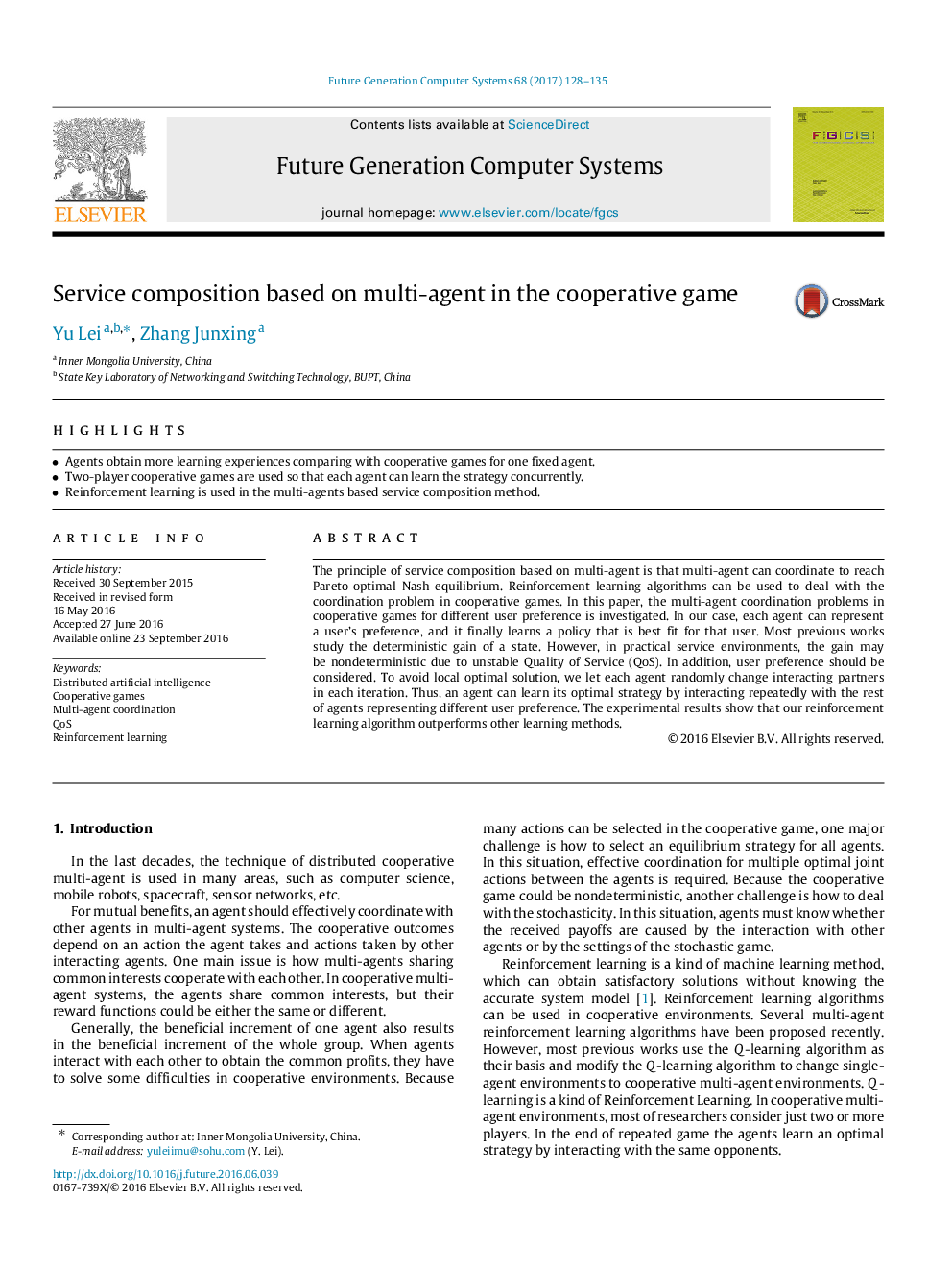| Article ID | Journal | Published Year | Pages | File Type |
|---|---|---|---|---|
| 4950491 | Future Generation Computer Systems | 2017 | 8 Pages |
Abstract
The principle of service composition based on multi-agent is that multi-agent can coordinate to reach Pareto-optimal Nash equilibrium. Reinforcement learning algorithms can be used to deal with the coordination problem in cooperative games. In this paper, the multi-agent coordination problems in cooperative games for different user preference is investigated. In our case, each agent can represent a user's preference, and it finally learns a policy that is best fit for that user. Most previous works study the deterministic gain of a state. However, in practical service environments, the gain may be nondeterministic due to unstable Quality of Service (QoS). In addition, user preference should be considered. To avoid local optimal solution, we let each agent randomly change interacting partners in each iteration. Thus, an agent can learn its optimal strategy by interacting repeatedly with the rest of agents representing different user preference. The experimental results show that our reinforcement learning algorithm outperforms other learning methods.
Keywords
Related Topics
Physical Sciences and Engineering
Computer Science
Computational Theory and Mathematics
Authors
Yu Lei, Zhang Junxing,
